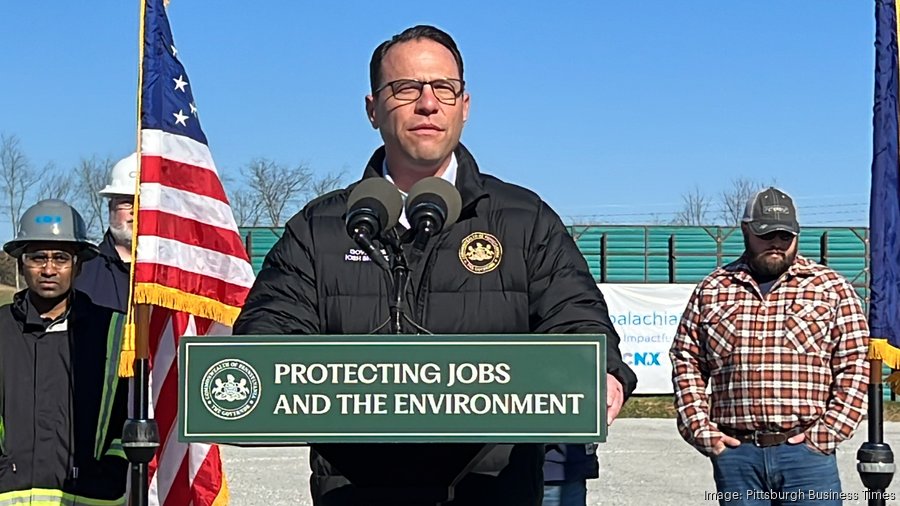Listen to this article 3 min
Gov. Josh Shapiro on Wednesday called for Pennsylvania to pull out of the Regional Greenhouse Gas Initiative, an 11-state environmental initiative his predecessor joined by executive action and vociferously defended against criticism and lawsuits from the General Assembly.
Shapiro will instead propose to create the Pennsylvania Climate Emissions Reduction Act (PACER), which will create a Pennsylvania-specific carbon reduction program that won’t force it to go along with the other Northeast states that don’t have as much of a stake in energy generation and emissions. RGGI would have done that, to the dismay of the energy and manufacturing industry as well as many labor unions. In a speech Wednesday in Scranton, Shapiro said PACER would, if approved by the Legislature, cut carbon emissions by industrial and power-generation sectors while at the same time 70% of the fees generated would go back to electrical consumers in the commonwealth.
The remainder will go to fund investment in former power plants and industrial sites. Shapiro specifically mentioned the former Homer City power plant that closed in 2023 in part due to concerns about RGGI.
“This plan is tailored for Pennsylvania. We will not take direction from anyone outside of this commonwealth,” Shapiro said Wednesday in Scranton. “This initiative will be established by us, run by us, and benefit us. We will set our own cap, we will set our own price for those carbon credits.”
DEP annually will set a cap on carbon emissions from the 55 large power plants in Pennsylvania, and the owners of the plants will be required to purchase credits to offset the pollution. But the cap will be focused on Pennsylvania instead of other Northeast states like New York and Connecticut, that don’t have the same high level of energy exports as the commonwealth. Pennsylvania exports about 30% of the energy produced and is the largest state supplier of energy in the United States.
“We won’t have any other state determining what’s right for us in Pennsylvania,” Shapiro said.
The cap-and-invest program announced by Shapiro was hammered out last year in the RGGI working group of officials, labor, environmental and energy personnel that met and made suggestions to the governor last year.
Shapiro’s initiative could end the saga over then-Gov. Tom Wolf’s decision, announced in Pittsburgh in early 2019, for Pennsylvania to join RGGI. The Wolf administration said that it was essential for Pennsylvania to not only move into a lower-emissions future but also ensure the commonwealth had funds to pay for clean energy programs. But Wolf’s executive order irked the Republican-controlled Legislature, who fought against it including a bill that was vetoed by Wolf, and eventually filed a lawsuit. The Commonwealth Court ruled on Nov. 1 that Pennsylvania’s joining RGGI was against the state Constitution.
The Shapiro administration appealed the Commonwealth Court decision but said it was on executive grounds, not on support of RGGI. Shapiro, after his remarks, said his goal was to have PACER in place in Pennsylvania instead of RGGI.
"I did not put in my budget an assumption of revenue coming from RGGI," Shapiro said. "I understand that was a priority of my predecessor. This is my priority."
Shapiro also announced another initiative that would help the commonwealth navigate the clean-energy future, and also update what environmental groups have long said are antiquated: the alternative energy standards.
